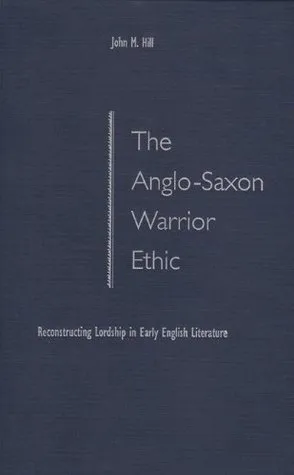The Anglo-Saxon Warrior Ethic: Reconstructing Lordship in Early English Literature
By (author): "John Hill"
ISBN0813017696
ISBN139780813017693
AsinThe Anglo-Saxon Warrior Ethic: Reconstructing Lordship in Early English Literature
Original titleThe Anglo-Saxon Warrior Ethic: Reconstructing Lordship in Early English Literature
"A consistently informative and often impressively detailed analysis of Anglo-Saxon heroic stories (especially Beowulf, Brunanburh, Maldon), this study pulls them out from under the pall of pseudo-mystical Germani-schism that has shrouded them for generations and returns them to something of their own historical, and especially political, origins."--R. A. Shoaf, University of FloridaAnglo-Saxon poems and fragments seem to preserve a long-standing Germanic code of heroic values, but John Hill shows that these values are probably not much older than the poems that record and advance them.In the first book-length application of anthropological research to Old English heroic literature, Hill demonstrates that the loyalties and values celebrated in "The Battle of Brunanburh," "The Battle of Maldon," and numerous other heroic episodes in Old English literature are not aspects of an archaic or ancient ethical life but instead political models serving the interests of West Saxon kingship and hegemony. Using the much more complicated Beowulf as an illuminating counterpoint, Hill works out the development in the heroic literature of these new ideals.Employing anthropological and psychoanalytic perspectives, Hill reopens for study an important subject of Old English literature long thought settled, and he provides a window onto the process of Anglo-Saxon state formation that should appeal to medievalists in both literary studies and history.John M. Hill is professor of English at the U.S. Naval Academy and author of several books, including Chaucerian Belief and The Cultural World in Beowulf.
